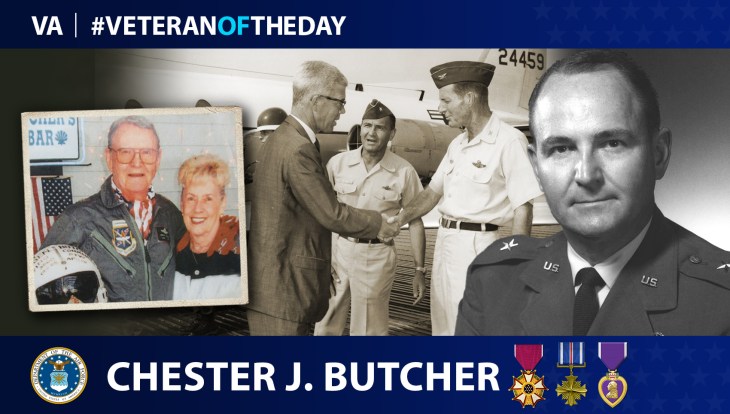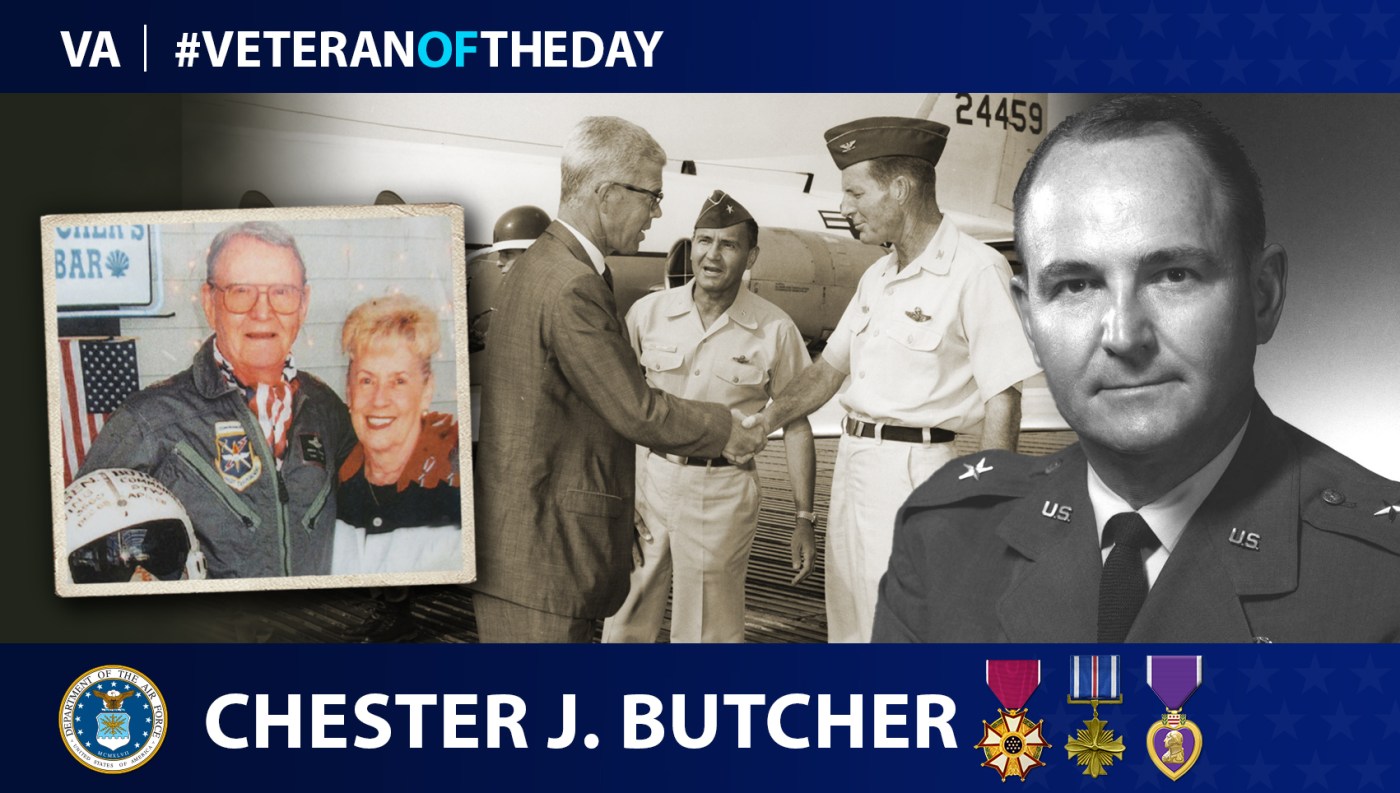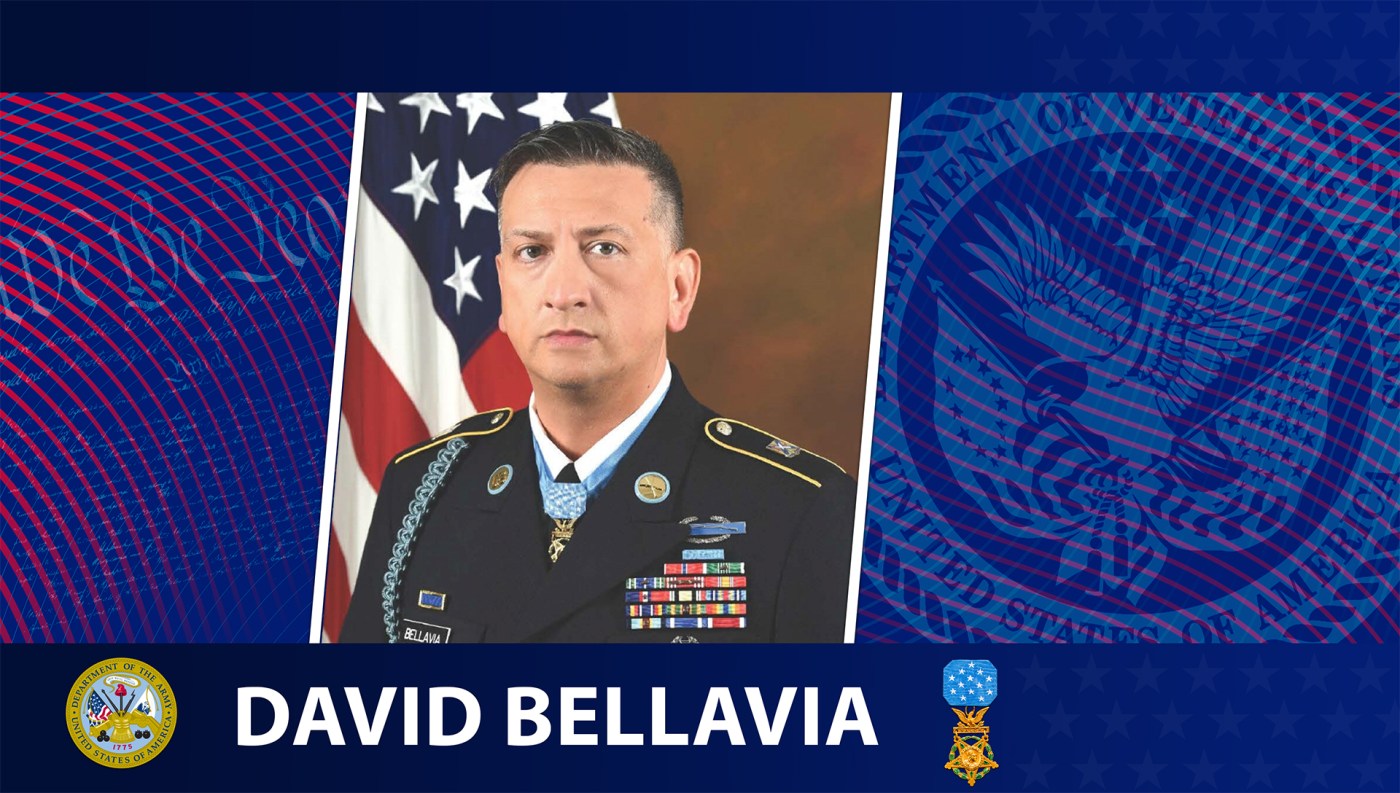August 6, 2022

Chester J. Butcher was born in January 1922 in Lafayette, Louisiana. After graduating from Cathedral High School in 1938, he attended the University of Southwestern Louisiana, but entered the U.S. Military Academy a year later. After completing basic and flight training at West Point, New York, he continued his studies, graduating in January 1943 with a Bachelor of Science and a commission of second lieutenant.
In the European theater of World War II well underway, Butcher was assigned to the 355th Fighter Group in England as a flight commander and operations officer. As a part of the 355th Fighter Group, he performed strafing runs in the cockpits of P-47s and P-51s, aerial maneuvers in which low altitude aircraft assault ground targets with their automatic weapons.
During a mission in the south of France, Butcher was shot down in a P-51 while executing a strafing run on German airfields. Surviving the crash, he was taken as a prisoner of war (POW) and would spend a year and a half in hospitals and POW camps until being released in April 1945.
After returning stateside following the war, Butcher immediately reentered active duty and served at Shaw Field, South Carolina, as a squadron commander. In 1946, he attended the Command and General Staff School at Fort Leavenworth, Kansas. While there, he also returned to his academic pursuits, earning a Master of Science in Aeronautical Engineering from Princeton University.
Butcher eventually served as chief of the flight branch of the directorate of research and development at U.S. Air Force Headquarters, where he was also given the dual role of a White House aid during the Truman and Eisenhower administrations. After serving in that capacity for three years, he was reassigned to a new position as executive officer to the assistant secretary of the Air Force for research and development in 1959. During this time, he attended the Industrial College of the Armed Forces, after which he was assigned as chief of the Air Defense, Strategic and Space Divisions, deputy chief of staff for research and development.
Butcher continued to serve in executive positions throughout the remainder of his career, advancing to the grade of brigadier general on May 1, 1968. He later served abroad in command of Nakhon Phanom Royal Thai Air Force Base, Thailand, as well as becoming deputy commander of the 5th Allied Tactical Air Force in Southern Europe.
Gen. Butcher retired as a command pilot in 1974.
Over his career, Butcher was awarded the following medals and honors: a Legion of Merit with two oak leaf clusters, a Distinguished Flying Cross, a Purple Heart with an oak leaf cluster, a Meritorious Service Medal, an Air Medal with nine oak leaf clusters, an Air Force Commendation Medal and an Army Commendation Medal.
Butcher died in 2013.
We honor his service.
Nominate a Veteran
Do you want to light up the face of a special Veteran? Have you been wondering how to tell your Veteran they are special to you? VA’s “Honoring Veterans” social media spotlight is an opportunity to highlight your Veteran and his/her service.
It’s easy to nominate a Veteran. Visit our blog post about nominating to learn how to create the best submission
Writer: Milosh Mihajlovic-Klaric
Editors: Alexander Reza, Annabelle Colton
Researcher: Patrick Woods
Graphic Designer: Kiki Kelley
Topics in this story
More Stories
This week’s Honoring Veterans Spotlight honors the service of Army Veteran David Bellavia, who received a Medal of Honor from the Iraq War’s deadliest operation, the Second Battle of Fallujah.
This week’s Honoring Veterans Spotlight honors the service of Army Veteran Scotty Hasting, who served in Afghanistan.
This week’s Honoring Veterans Spotlight honors the service of Army Veteran Roy Sheldon, who served in 97th General Hospital in Frankfurt, Germany.






